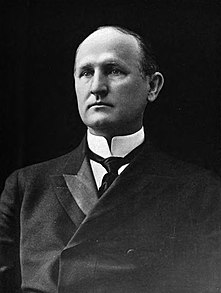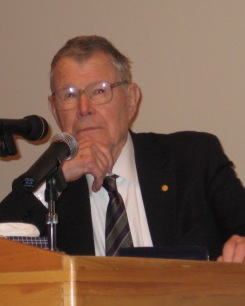 W
WRacial segregation is the systematic separation of people into racial or other ethnic groups in daily life. Racial segregation can amount to the international crime of apartheid and a crime against humanity under the Statute of the International Criminal Court. Segregation can involve the spatial separation of the races, and mandatory use of different institutions, such as schools and hospitals by people of different races. Specifically, it may be applied to activities such as eating in restaurants, drinking from water fountains, using public toilets, attending schools, going to movies, riding buses, renting or purchasing homes or renting hotel rooms. In addition, segregation often allows close contact between members of different racial or ethnic groups in hierarchical situations, such as allowing a person of one race to work as a servant for a member of another race.
 W
WGhettos in the United States are typically urban neighborhoods perceived as being high in crime and poverty. The origins of these areas are specific to the United States and its laws, which created ghettos through both legislation and private efforts to segregate America for political, economic, social, and ideological reasons: de jure and de facto segregation. De facto segregation continues today in ways such as residential segregation and school segregation because of contemporary behavior and the historical legacy of de jure segregation.
 W
WApartheid was a system of institutionalised racial segregation that existed in South Africa and South West Africa from 1948 until the early 1990s. Apartheid was characterised by an authoritarian political culture based on baasskap, which ensured that South Africa was dominated politically, socially, and economically by the nation's minority white population. According to this system of social stratification, white citizens had the highest status, followed by Asians and Coloureds, then black Africans. The economic legacy and social effects of apartheid continue to the present day.
 W
WAuto-segregation or self-segregation is the separation of a religious or ethnic group from the rest of society in a state by the group itself. This could also mean inability for a normal social interaction and a form of social exclusion.
 W
WCharles Brantley Aycock was the 50th Governor of the U.S. state of North Carolina from 1901 to 1905. After starting his career as a lawyer and teacher, he became active in the Democratic Party during the party's Solid South period, and was a strong proponent of the white supremacy campaigns of that period. Aycock was one of the leading perpetrators of the Wilmington insurrection of 1898, in which whites took over the city government by force, the only coup d'état in U. S. history.
 W
WThe 1913 Bloemfontein anti-pass campaign was a series of repeals by women of colour against official regulations which forced them to carry documentation of formal employment and restricted their movement. The pass system was enforced to ensure control over the Black and Coloured women providing domestic services in what was then one of the Boer Republics, namely the Orange Free State
 W
WThe California Alien Land Law of 1913 prohibited "aliens ineligible for citizenship" from owning agricultural land or possessing long-term leases over it, but permitted leases lasting up to three years. It affected the Chinese, Indian, Japanese, and Korean immigrant farmers in California. Implicitly, the law was primarily directed at the Japanese. It passed 35–2 in the State Senate and 72–3 in the State Assembly and was co-written by attorney Francis J. Heney and California state attorney general Ulysses S. Webb at the behest of Governor Hiram Johnson. Japan's Consul General Kametaro Iijima and lawyer Juichi Soyeda lobbied against the law. In a letter to the United States Secretary of State, the Japanese government via the Japanese Minister of Foreign Affairs called the law "essentially unfair and inconsistent... with the sentiments of amity and good neighborhood which have presided over the relations between the two countries," and noted that Japan felt it was "in disregard of the spirit of the existing treaty between Japan and the United States." The law was meant to discourage immigration from Asia, and to create an inhospitable climate for immigrants already living in California.
 W
WThe Espanola Schoolhouse is a one-story; one-room rural school building that has survived from the Jim Crow racial segregation-era. It is the last standing one-room schoolhouse in Flagler County. It is located at 98 Knox Jones Avenue, Bunnell, Florida 32110.
 W
WA ghetto, often the ghetto, is a part of a city in which members of a minority group live, especially as a result of social, legal, or economic pressure. Ghettos are often known for being more impoverished than other areas of the city. Versions of the ghetto appear across the world, each with their own names, classifications, and groupings of people.
 W
WJesse Alexander Helms Jr. was an American journalist, media executive, and politician. A leader in the conservative movement, he served as a senator from North Carolina from 1973 to 2003. As chairman of the Senate Foreign Relations Committee from 1995 to 2001 he had a major voice in foreign policy. Helms helped organize and fund the conservative resurgence in the 1970s, focusing on Ronald Reagan's quest for the White House as well as helping many local and regional candidates.
 W
WInternal resistance to apartheid in South Africa originated from several independent sectors of South African society and took forms ranging from social movements and passive resistance to guerrilla warfare. Mass action against the ruling National Party (NP) government, coupled with South Africa's growing international isolation and economic sanctions, were instrumental in leading to negotiations to end apartheid, which began formally in 1990 and ended with South Africa's first multiracial elections under a universal franchise in 1994.
 W
WA jazz club is a venue where the primary entertainment is the performance of live jazz music, although some jazz clubs primarily focus on the study and/or promotion of jazz-music. Jazz clubs are usually a type of nightclub or bar, which is licensed to sell alcoholic beverages. Jazz clubs were in large rooms in the eras of Orchestral jazz and big band jazz, when bands were large and often augmented by a string section. Large rooms were also more common in the Swing era, because at that time, jazz was popular as a dance music, so the dancers needed space to move. With the transition to 1940s-era styles like Bebop and later styles such as soul jazz, small combos of musicians such as quartets and trios were mostly used, and the music became more of a music to listen to, rather than a form of dance music. As a result, smaller clubs with small stages became practical.
 W
WNoble and Wolf v Alley [1951] S.C.R. 64 is a famous Supreme Court of Canada decision where the Court struck down a restrictive covenant that restricted ownership of a section of land to "persons of the white or Caucasian race".
 W
WThe Peak District Reservation Ordinance 1904, originally enacted as the Hill District Reservation Ordinance, is commonly called the Peak Reservation Ordinance and was a zoning law that reserved most of the Victoria Peak as a place of residence to non-Chinese people except with the consent of the Governor-in-Council. The law was in force from 1904 to 1930 where the deadly Third Pandemic of Bubonic plague took place in China, causing 100,000 deaths, and enormous number of Chinese influxed into Hong Kong. Contemporary historians’ views toward the Ordinance vary, with some attributing the Ordinance to health segregation, whereas others attribute it to social status segregation. The debate on the second reading of the Bill is recorded in the Hong Kong Hansard, which shows that the two Chinese members, Ho Kai and Wei Yuk, did not oppose the Bill but a minority of the "leading Chinese" in the community were against it.
 W
WThe Political Cesspool is a weekly far-right talk radio show founded by Tennessean political activist James Edwards and syndicated by the organizations Liberty News Radio Network and Accent Radio Network in the United States. First broadcast in October 2004 twice a week from radio station WMQM, per Edwards it has been simulcast on Stormfront Radio, a service of the white nationalist Stormfront website and as of 2011 is broadcast on Saturday nights on WLRM, a blues and southern soul radio station in Millington, Tennessee. Its sponsors include the white separatist Council of Conservative Citizens and the Institute for Historical Review, a Holocaust denial group.
 W
WThe Ponce de Leon amusement park was built on the site of Ponce de Leon Springs. Omnibus service from Atlanta to the springs started in 1872, and in 1874 horsecar service started. It developed in the late 1880s and 1890s with the addition of attractions for children, a dance hall and theater, and picnic grounds. In 1903 construction of the full-fledged amusement park began. By then the park was served by the Nine-Mile Circle electric streetcar line.
 W
WRedlining is the systematic denial of various services by federal government agencies, local governments, or the private sector either directly or through the selective raising of prices. This often manifested by placing strict criteria on certain goods that often disadvantaged poor and minority communities. Prior to the Fair Housing Act of 1968, there were no specific laws that protected minority populations from discriminatory practices such as redlining. Businesses were therefore able to exploit these groups in order to increase their profits. Redlining was utilized in the housing industry by mortgage companies to suppress minority populations from receiving home loans. This directly contributed to the spatial isolation of minority communities as they were denied a loan to move out of the neighborhood, while also being denied the funds to improve their current homes.
 W
WThomas Crombie Schelling was an American economist and professor of foreign policy, national security, nuclear strategy, and arms control at the School of Public Policy at University of Maryland, College Park. He was also co-faculty at the New England Complex Systems Institute. He was awarded the 2005 Nobel Memorial Prize in Economic Sciences for "having enhanced our understanding of conflict and cooperation through game-theory analysis."
 W
WGeorge Boyer Vashon was an American scholar, poet, and abolitionist.